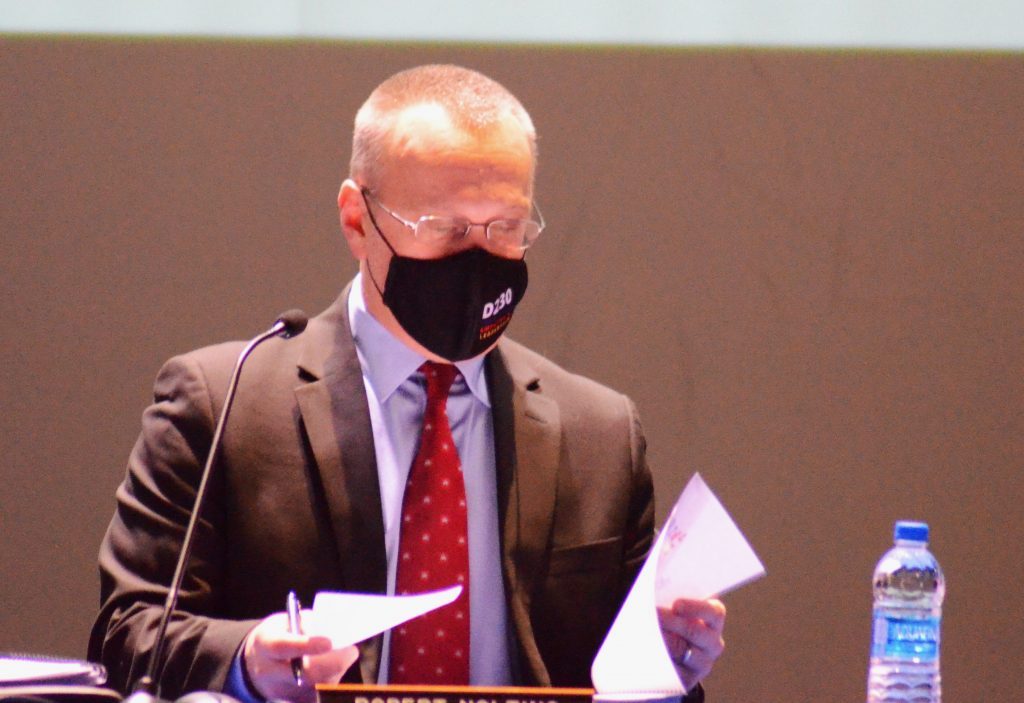
Inside Illinois’ youth lockups, children go without basic services and face “excessive” punishments
By MOLLY PARKER
Capitol News Illinois
news@capitolnewsillinois.com
This article was produced for ProPublica’s Local Reporting Network in partnership with Capitol News Illinois.
In late December, a teenage boy with a broken arm was left to suffer alone in his cell at a youth lockup in rural southern Illinois. Staff were aware he’d been seriously injured; he told them he was in pain and asked to see a doctor. Two hours passed before staff took him to the hospital, during which they cooked and served dinner and took a group of kids for recreation, he claimed.
Almost everything had gone wrong that day, at a place where things went wrong a lot. Four months earlier, a state audit had called the Franklin County Juvenile Detention Center in rural Benton a “facility in crisis” because it was routinely keeping kids locked up for upwards of 24 hours at a time, a “significant violation” of state standards. It had failed to offer them much in the way of mental health or educational services, the audit said. An overwhelmed and undertrained staff routinely called on the sheriff’s department to help keep the youth in line, even for seemingly minor behavioral disruptions, according to additional law enforcement records obtained by Capitol News Illinois.
All of that was evident on this particular day, when the residents were told they’d get a rare treat, an hour or so inside the facility’s gymnasium.
But once in the gym, the boy got into a shouting match with another youth and staff ordered him back to his room. Devastated to lose his rare gym time, he refused to go. Deputies from the sheriff’s office across the street rushed in — several men who were much bigger than the teen, according to sworn statements that several youth provided for a federal lawsuit the American Civil Liberties Union of Illinois filed against the detention center this summer.
The lawsuit alleges widespread failures, namely that the detention center had violated youths’ constitutional rights by subjecting them to excessive forms of restraint and seclusion while denying them adequate education and mental health services. The children who are confined there are “uniquely vulnerable, many having already suffered harrowing abuse and trauma” — and instead of caring for them, the lawsuit claims, the facility subjected them to “inhumane conditions” known to cause lasting harm.
Melissa Morgan, chief judge of the 2nd Judicial Circuit Court of Illinois, whose office is ultimately charged with running the facility, did not return phone calls seeking comment, though an assistant confirmed she had received the messages. In a court filing last week, Illinois Attorney General Kwame Raoul, who is representing the chief judge and other senior facility staff sued in federal court, denied the allegations of poor care leveled against the facility. The attorney general’s office declined further comment. In a separate filing on Monday, Franklin County, which was also named in the lawsuit, denied the allegations as well.
Youth at the facility said in signed statements taken under oath that the deputies took the boy to the ground, breaking his arm in the process, a claim that is backed up by law enforcement records obtained by Capitol News Illinois and ProPublica.
An excerpt from a youth’s sworn statement entered as evidence by the ACLU in a federal suit against the Franklin County detention center in which he relates how his arm was broken by sheriff’s deputies. (Obtained by Capitol News Illinois and ProPublica. Highlighting by ProPublica.)
“The officer asked me about my arm and I said ‘You know it’s broken. You heard it snap,’” the youth who was injured, identified only by his initials, A.B., said in his signed statement. A.B. is not a plaintiff in the suit, though his statement was included as evidence of the poor conditions alleged by the ACLU. The ACLU is seeking class-action status for the case, and that request is pending before a federal judge.
A month after the incident, the Illinois Department of Juvenile Justice returned to the detention center to see whether the “facility in crisis” had corrected any of the deficiencies cited in the August audit. It had made “some improvements” but “several” deficiencies remained and new ones were identified, the auditor wrote in a report on the visit. He also made note of the broken arm, saying that he could find no proof that anyone at the facility had conducted a review to determine whether staff or the deputies had acted appropriately. Franklin County Sheriff Kyle Bacon, who was among the law enforcement officers who restrained the youth that day, defended his department’s actions but said he could not speak to whether the facility had conducted an internal review because the sheriff’s office is not involved in its administration. Nearly a year later, a spokesperson for IDJJ said the detention center has yet to provide one.
A new analysis by Capitol News Illinois and ProPublica suggests those failures were not unusual. A review of hundreds of pages of state audits, law enforcement records, a federal lawsuit, and reports by oversight and advocacy bodies point to troubling conditions inside many of the state’s 16 juvenile detention centers, which operate much like adult jails, detaining court-involved youth with open cases when a judge determines they are at risk of fleeing or reoffending. The facilities combined can house upwards of 1,200 youth as young as age 10, though they are rarely at capacity.
The records show that youth have been Tased, pepper sprayed and roughed up by staff and law enforcement officers; forced into isolation for days at a time; denied access to their psychotropic medications and mental health treatment; and received little or no schooling, despite state and federal laws mandating that the youth receive educational services while incarcerated. Nearly two-thirds of those who are detained are Black teens.
Poor conditions in juvenile lockups across the country have recently made headlines, bringing renewed calls for reform. What makes Illinois different from many of its state peers is that no independent agency licenses or certifies the youth detention centers. Even in some states that have been heavily scrutinized for problematic conditions inside their youth facilities, such as Louisiana, Tennessee, Michigan and Pennsylvania, a licensing process is in place that allows for sanctions up to closure.
Under state law, the Illinois Department of Juvenile Justice sets standards for county detention facilities that hold youth in custody and conducts audits of them. While the department has repeatedly cited several centers for failing to meet its standards, under state law, IDJJ cannot mandate corrective action plans, issue fines or shut down detention centers found in repeated violation of the rules. Instead, the IDJJ reports are sent back to the county detention facilities’ staff and to the chief judges of each judicial circuit, under whose authority they operate. Neither the staff nor the judges are obligated to respond.
IDJJ shares oversight of the youth detention centers with the Illinois Supreme Court. The high court’s administrative arm implemented its own set of standards for facilities in 2022 and started conducting reviews later that year. In its initial review of the detention centers, the court found that about a third did not meet its standards, and action plans were developed with them to address deficiencies. Christopher Bonjean, a spokesperson for the Illinois Supreme Court, declined to provide the full reviews or any of the ongoing progress reports for facilities requiring action plans, saying that only its initial summary reports are made public. The judicial branch is not subject to the Illinois Freedom of Information Act.
Juvenile justice experts and advocates for incarcerated youth in Illinois say the weak oversight of these facilities needs the attention of lawmakers and policy experts.
And it’s the latest example the news organizations have revealed about the failures of Illinois officials to put an end to the poor treatment of vulnerable populations held in facilities, even when problems are well documented.
Capitol News Illinois spoke with six experts in the field of juvenile justice and youth development who said facilities that detain children should have robust oversight structures. This spring, Equip for Equality, Illinois’ federally designated legal aid organization for people with disabilities, called on policymakers to reform the oversight system “given the longstanding, serious and pervasive problems” inside facilities statewide.
“Would you want nursing homes operated without any oversight? I don’t want nursing homes operated without oversight. So to think we don’t have any kind of oversight and quality improvement for kids that are in custody in a facility, I don’t understand,” said Hunter Hurst, director of the National Center for Juvenile Justice, the research arm of the National Council of Juvenile and Family Court Judges.
IDJJ Director Heidi Mueller said in an interview that she agrees that the agency is limited in what it can do if a county’s chief judge can’t or won’t enforce compliance.
“I think a lot of folks would say that that oversight mechanism isn’t what you would call best practice,” Mueller said. Only the Illinois General Assembly has the authority to change the oversight structure, she said. Mueller stopped short of making a call for lawmakers to do so, saying that’s not her role as an agency leader.
Widespread Problems
Oversight entities have identified numerous problems in facilities across the state. In a March report, Equip for Equality found widespread problems at Chicago’s youth lockup — the state’s largest — including that it had utilized “unjust and excessive use of physical restraints and seclusion, often as punishment, with a wanton disregard of state law.”
In a letter addressed to Equip for Equality, Leonard Dixon, superintendent of the Chicago facility, rebutted the findings, saying that the youth facility follows state and federal laws and that the advocacy group’s claims about unlawful restraints were “unsupported” and that physical restraints are “never used as punishment.” Dixon noted to the news organizations in a statement that recent state audits found the facility to be in compliance with restraint standards.
Concerns about excessive use of force extended beyond Chicago. In April, a youth at the Mary Davis Home in Galesburg, in central Illinois, told an IDJJ auditor of a troubling physical restraint from the day before. After watching a video of the incident, the inspector was so alarmed that he reported it to the state’s child abuse hotline, although ultimately the Department of Children and Family Services did not designate this as a case of abuse or neglect. No other governmental body is charged with reviewing whether administrative policies were properly followed in specific situations. The IDJJ audit noted that one of the staff members involved had not received the training the facility utilizes to teach staff proper restraint techniques.
Wendi Steck, superintendent of the Mary Davis Home, said the employee involved in the restraint incident no longer works there, but she declined to say whether his departure was related to this incident. “Any incidents of abuse of our clients are not tolerated and are dealt with swiftly,” she said. “All staff are trained in Handle with Care restraint and cannot be involved in any restraints until successfully trained.”
Perhaps nowhere are concerns as extensive as those documented at the 32-bed youth lockup in Benton, the only one that IDJJ labeled “in crisis.” The facility is the state’s southernmost detention center and houses youth from across 26 counties — the lower quarter of the state.
Among IDJJ’s findings in its August 2022 audit: Youth were confined to their rooms for upwards of 24 hours for behavioral infractions, though state standards limit the use of seclusion to four hours and allow it only if youths are at risk of harming themselves or others. In fact, because the facility was so short-staffed that IDJJ described the issue as “critical and unsustainable,” youth were kept in their rooms for most of their days there, even if they had not acted out. The facility has a gym and outdoor recreation area, but youth had not utilized either area for two years. The facility had no process for assessing youth to determine if they were at risk of sexual assault or of sexually assaulting a peer, a requirement of the federal Prison Rape Elimination Act. Mental health services were “minimal” and “there was an obvious lack of training” among the staff.
Staff at the Benton facility told the IDJJ auditor that at one time, it had utilized the Crisis Prevention Institute to train staff on how to try to calm situations before they escalate and how to properly use physical restraints if it can’t be avoided. But a supervisor acknowledged to the IDJJ inspector that such training had not been conducted in several years and that some newer employees may have never received it. “This poses a high risk for potential liability for the county,” IDJJ wrote in the audit.
Joseph A. Cervantez, the state’s attorney in Jackson County, one of the counties from which youth go to the Benton facility, said he was so alarmed when he read the report that he immediately stopped sending youth there. Without better services, he said, “I might as well just keep them out on the street.”
When IDJJ followed up in January, it found that many problems had not been corrected in the intervening five months. It also criticized the facility’s handling of the broken arm incident. Detention center staff told the auditor that its video system was faulty and didn’t record what happened. A senior official told the auditors that an internal review had been conducted but could produce no written record of it. While the standards do not stipulate the use of video cameras inside the facilities, any use of restraint or seclusion requires a full written report.
Bacon, the sheriff, said his office conducted an internal review consisting of a conversation between him and the chief deputy about what had transpired. “I was present and I was familiar with what was happening and the actions that we took, and there were no issues with those actions,” he said.
While IDJJ’s reports cited extensive problems, claims made by five youth who provided statements for evidence as part of the ACLU’s lawsuit, filed in July, suggested even more dire conditions. The youth said they were locked inside “very small concrete boxes” covered in black mold and that they were forced to eat their meals alone in their cells next to their toilets and sleep on wet mattresses because the windows leaked. One youth said he was experiencing a mental health crisis and cut his arm with a broken colored pencil. “Instead of getting me any mental health treatment, they just gave me a paper towel to clean up the blood,” he said.
The presence of law enforcement officers inside the facility is common, several of them said. “The crazy thing is the police don’t even just come in for fights or big things, they come in just when a kid doesn’t want to move and they do things that the staff should be doing,” said another youth.
Law enforcement records obtained by Capitol News Illinois showed that staff called on sheriff’s deputies 21 times between September 2021 and August 2023. Some of the calls were for seemingly minor incidents. For instance, on Aug. 1, staff requested backup because a youth had “stuffed snacks down his pants and won’t give them back.”
Part of a call log showing reasons why staff of the Franklin County Juvenile Detention Center called sheriff’s deputies into the facility. (Obtained by Capitol News Illinois and ProPublica.)
In some cases, the arrival of deputies resulted in more aggressive restraint techniques than are typical for — or allowed in — juvenile detention centers. In October 2022, detention center staff called for backup because a different youth had refused to return to his cell. When the deputies tried to force him back to his room, the youth assumed a fighting position, the responding deputy wrote in a report, so the deputy fired his Taser.
Staff in juvenile lockups are not allowed to use stun guns on youth, according to IDJJ.
Bacon said he believes the staff call on the sheriff’s deputies because of their ability to utilize tools, such as stun guns, that the facility staff cannot.
He said that he and his staff are trained in deescalation techniques and use force only when necessary. “There are youth that can cause harm to you,” Bacon said. “And we want to use the least amount of force necessary, but at the same time we have to protect ourselves from being injured as well as the youth. That’s not our intention to hurt anyone.” He also said that as he understands the law, his office is not bound by IDJJ standards, even when officers are responding to an incident inside a facility that is under those rules.
In a statement, IDJJ said it does not consider calling for outside law enforcement alone to be a violation of any standards, though “the standards would apply to how force, if any, is used.”
The agency said it had not been aware of the stun gun incident until they were alerted to it when they returned for an audit in late September. That audit is not complete and has not yet been made public.
Oversight Breakdown
Two years ago, IDJJ updated its standards for the operation of juvenile detention centers, incorporating language that emphasizes youths’ education and mental health and stresses appropriate use of restraint and seclusion. Its reports, available online, became more robust. But while they have helped bring problems to light, said Rachel Shapiro, a managing attorney with Equip for Equality, her agency is still identifying some “horrific” conditions that never appear in IDJJ audits.
And although it can document problems it has identified, IDJJ’s authority to ensure they are fixed is limited.
The law does allow the state agency to petition a court to order a facility into compliance if it hasn’t fixed deficiencies within six months of receiving notice from IDJJ. But IDJJ said the agency is “not aware of any instances” of agency staff initiating such a process, in part because it would have to petition the very courts that run them.
The Illinois Supreme Court is also limited in what it can do. Its standards say that the court “shall” withhold 10% of the salary reimbursements it provides to any facility that remains out of compliance 90 days after receiving notice, and another 10% monthly thereafter. But it has not financially sanctioned any facilities.
Instead, Bonjean said, a special unit within the Administrative Office of the Illinois Courts is closely monitoring any facilities that are still working through their corrective action plans.
A spokesperson for the state Supreme Court said that the Franklin County facility is making improvements but is not in compliance with its standards. (Julia Rendleman for ProPublica)
The court spokesperson declined to provide the news organizations with the court’s full review of the Benton facility, its action plans or its progress reports. He confirmed that it remains out of compliance 14 months after the review but said that it is “making progress.” The county has approved funds for needed repairs and improvements to the facility, he said, but they will “take some time.” Reducing funding, he said, “could be problematic and could hinder the progress we are trying to achieve.”
John Albright, IDJJ’s chief of performance and innovation, who conducts the audits for the agency, said he also tries to work closely with facility staff to help them understand the standards and how to meet them.
“Some facilities have been working very hard to make changes, and others maybe not as much,” he said.
When the oversight entities don’t compel action, the only option remaining for those who feel they were harmed by the system is a lawsuit, advocates say. Kevin Fee, an attorney with the ACLU of Illinois, said his organization is concerned about conditions across facilities. But those found in Benton were “far and away” the most troubling, he said.
“The Franklin County reports were pretty scathing, and we would have expected more action in response to those reports,” Fee said of the IDJJ audits. “But we didn’t see any, which is why we felt the need to bring the lawsuit.”
Jennifer Vollen-Katz, executive director of the John Howard Association of Illinois, an independent watchdog organization, agreed that even with the improved standards, there are still shortcomings with “system transparency and concerns about the treatment and conditions youth experience while in detention.”
The weak enforcement mechanisms are “a real deficiency in the state of Illinois,” she said. “We have work to do so that we’re not just inspecting these facilities and reporting on the issues. There has to be some way of holding the detention centers accountable and responsible for the treatment of youth in their custody short of litigation.”
Local News

Crime fighters will meet
Spread the loveBy Tim Hadac Residents of Police Beat 812 (Clearing, west of Central Avenue) are invited to attend their next CAPS meeting, set for 7 p.m. Wednesday, Feb. 9. The meeting will be held via Zoom in a webinar format. To obtain instructions and passcodes, call the Chicago Lawn (8th) District CAPS Office at…

Planned park in Palos Heights will have Olympic theme
Spread the loveBy Jeff Vorva The Misty Meadows subdivision in Palos Heights is getting a new park and it will be partially funded by a pair of famous local athletes. Plus, it will have an ice rink and an Olympic theme. NFL player Michael Schofield and his Olympic hockey gold- and silver-medal-winning wife, Kendall Coyne…

Cook County Animal and Rabies Control offers pet safety tips
Spread the loveParts of Cook County could see up to 12 inches of snow over the next day as a winter storm moves across the area starting tonight. Cold weather creates hazardous conditions for residents and their pets. The Cook County Department of Animal and Rabies Control reminds residents to take special precautions to keep…

Winter storm could bring heavy snowfall
Spread the loveParts of Cook County could see up to 12 inches of snow over the next day as a winter storm moves across the area starting tonight. The county’s Department of Transportation and Highways is monitoring conditions and has resources on standby to keep the 1,500 lane miles the county maintains, safe for drivers.…

Polk insists residents should use 9-1-1 when they need help
Spread the loveBy Jeff Vorva With snowstorms and bad weather hitting the area, first responders and 9-1-1 operators are taxed and stretched out. But Palos Park Police Commissioner Dan Polk said that should not deter people from calling 9-1-1. He insists on it. At the Jan. 24 village council meeting, Polk made a passionate speech…

District 230 waits for judge’s decision on mask mandates
Spread the loveBy Jeff Vorva Stagg and Sandburg students, parents and teachers are awaiting the decision of a Sangamon County judge to find out if there is any change in the mask mandate. District 230 was one of 145 districts in the state taken to court by parents who are against the mandate and believe…

Summit approves deal with CEDA for water assistance
Spread the loveBy Carol McGowan Help may be on the way for some Summit residents that have trouble paying their water bills. The Summit Village Board recently approved an ordinance authorizing an agreement by, and between the Community and Economic Development Association of Cook County. It’s a vendor agreement for the Low-Income Household Water Assistance…

Willow Springs hires Grace as village administrator
Spread the loveBy Steve Metsch Citing his experience in Lyons, Willow Springs Mayor Melissa Neddermeyer said Ryan Grace was the best of five finalists interviewed for the job of village administrator. Grace, 38, had been public works director in Lyons the past four years, working on a wide range of village issues and events in…

Body of missing Forest View woman found
Spread the loveBy Carol McGowan The search for 20-year-old Charisma Ehresman of Forest View is over. The body of the young woman was found Friday evening in her vehicle in Chicago’s South Austin neighborhood, on the city’s west side, which borders Oak Park. The car had apparently been there for several days. The Cook County…
Neighbors

Woman sentenced in 2003 murders of newborn twins
Spread the loveFrom staff reports A 44-year-old woman, charged in the 2003 deaths of her newborn twins following an extensive cold case investigation by Cook County Sheriff’s Police, has been convicted of murder. On May 8, Cook County Sheriff Thomas J. Dart announced that Antoinette Briley pled guilty to murder at the Bridgeview Courthouse and…

McCook approves ‘preventive’ rodent control program
Spread the loveBy Steve Metsch The McCook Village Board earlier this month approved what Mayor Terrance Carr calls “preventive maintenance.” The board on May 6 unanimously approved paying Rose Pest Solutions $12,000 for a 10-week rodent control program throughout the village. It’s not that the McCook now has a rat problem, Carr said. It’s that…

Summit, property owners discuss apartment inspections
Spread the loveBy Carol McGowan Nearly 75 people attended a community meeting last Wednesday evening in the multi-purpose room of Graves School to learn about changes coming to the village. Three topics highlighted the meeting. Rental property inspections, lead line replacement, and replacing the 74th Avenue pedestrian bridge. Mayor Sergio Rodriguez tackled the controversial rental…

Tollway to hand out free transponder stickers in Justice
Spread the loveBy Carol McGowan Earlier this year, the Illinois Tollway began phasing out the plastic I-Pass transponder and introduced a sticker tag that goes on your vehicle’s windshield. If you’re still using a transponder, or want to get a new sticker, the Village of Justice is the place to be on Saturday, June 8.…

Oak Lawn Library draws a crowd with Fan Fest
Spread the loveBy Kelly White Comic book lovers gathered together in one common space earlier this month. Oak Lawn Public Library hosted its eighth annual Fan Fest, an all-ages celebration of pop culture, on May 11 at the library, 9427 S. Raymond Avenue. “It’s wonderful to see the community come together in celebration of shared…

Navajo Hills residents want to save threatened cul-de-sacs
Spread the loveBy Nuha Abdessalam Navajo Hills greenspace islands could be getting the ax and residents are upset. Residents of the East and West Courts of Navajo Hills, aware of the historical significance of the greenspace, spoke up during the Palos Heights City Council meeting May 21. There are five cul-de-sacs in the Navajo Hills…

Nerds and bullies among topics of Orland’s State of the Village
Spread the loveBy Jeff Vorva The 2024 Orland Park State of the Village Address was held at the Orland Park Civic Center, but it could have been held on a playground with talk of nerds and bullies and cool kids. Mayor Keith Pekau spent the first half hour “ripping off the Band Aid” of some…








